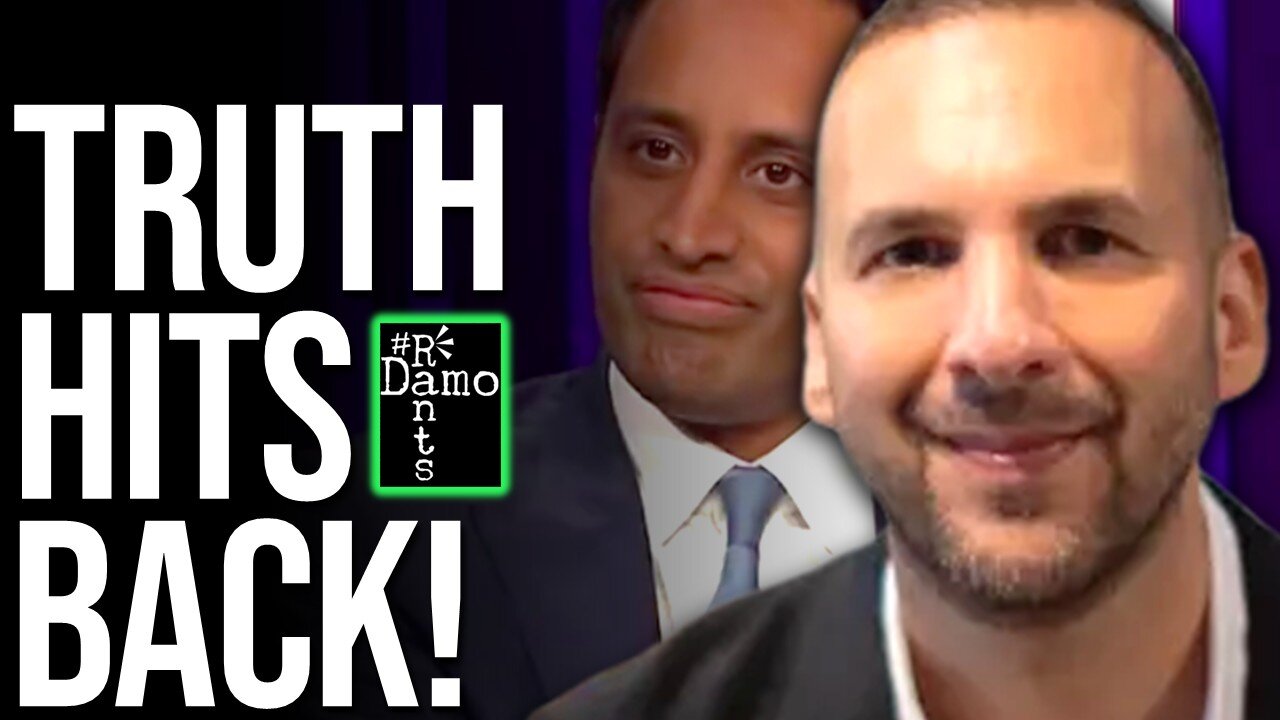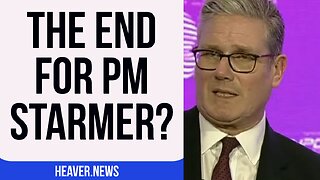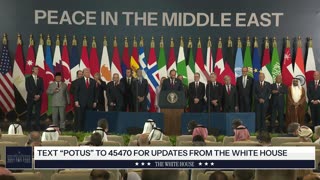Premium Only Content

Reform UK Tried a Tabloid Smear — And Ended Up on Trial Themselves
Right, so I tuned into Question Time this week for the first time in about 6 years and I’m glad I did – not because anything had changed on the BBC, it is still an awful program rigged with establishment figures and lazy, lousy narratives, but because for the first time Zack Polanski, the new Green Party leader, finally got a seat on the panel. Naturally the seat that seems to be permanently reserved for Reform UK got filled too, as the far right sent a man who isn’t even elected to smear him with a story lifted straight out of The Murdoch Sun’s fantasy section, the bit they pass off as news. Zia Yusuf seems to be Reform UK’s favourite rent-a-gob these days and he thought he’d landed a knockout blow with performative falsehoods, all the right wing have, when they can’t fight you on the policies. What he actually did was detonate his own side’s credibility on live television. Because while he was slinging tabloid gossip from ten years ago, Polanski just sat there and calmly dismantled his party’s Russian money trail. And that’s the difference between the politics of theatre and the politics of truth: one relies on volume, the other on evidence. The BBC gave us its usual circus — only this time, the clown act got eviscerated. It’ll be a long time no doubt, before they let Polanski on again.
Right, so here we go, just another Question Time, only this time it wasn’t: the primetime ritual where the BBC manufactures “balance” by seating a load of establishment shills to take swipes at each other whilst offering us nothing of any value got a shake up. Sure Reform UK was there as usual, this time sending unelected populist and multi-millionaire Zia Yusuf – his third turn on the panel this year - to contest a politician who still believes politics should be about serving public interests. As a result, the usual pantomime failed though. Zack Polanski, newly elected leader of the Green Party, was finally making his first appearance on the panel. The outcome did not go according to plan. It was not the usual managed row producers expected; the gotcha of Polanski that they no doubt were hoping having loaded the rest of the panel accordingly, it was the implosion of the smear machine itself because they just didn’t land.
Yusuf came armed not with facts but with folklore: a more than decade-old Sun article, so you knew it was drivel from the get-go, claiming that Polanski had once “tried to enlarge women’s breasts with hypnosis.” Proper value for the public who tuned in hoping for some hope that their lives might get better. No, it was tabloid much-raking. It was the kind of pub-level mockery Reform thrives on. Fiona Bruce, chairing, didn’t just let it run, sh acted as if Yusuf was the producer giving her her cue – yes lets talk about hat story and then proceeded to explain it for those unaware of the 12 year old non-story. The insinuation hung in the air like a bad smell.
Polanski’s response was categorical though – he didn’t dodge it, he took it head on. He knew what show he was on, he knew there was a good chance this was coming I’m sure. He pointed out that the story came from The Sun, a paper whose record on truth ranges from the Hillsborough lies to fabricated migrant “benefits” stories, another favourite song from Yusuf’s hymn sheet. He explained that before politics he had worked as a hypnotherapist helping people with anxiety and confidence; that a journalist had twisted a throwaway line into a circus headline; that he had long since condemned the distortion and had apologised for it, despite not being responsible for what had been alluded, but hen he turned the tables. Two can play at this game, only Polanski came armed with something far more dangerous. If Reform UK wanted to discuss character, he said, perhaps they could start by explaining their own money trail — specifically, the Russian connections surrounding their donors and former officials.
Yusuf’s customary smirk disappeared. And for once, the BBC’s most tightly scripted programme lost control of its narrative.
British politics runs on smear economics. Tabloids manufacture gossip, broadcasters distribute it, and social-media platforms funnel the outrage. The smear is not an accident but a form of insurance — a system’s way of punishing those who threaten its consensus. Polanski’s 2013 tabloid caricature was never about journalism; it was about ridicule as a weapon of containment. Once a narrative like that is printed, it becomes permanent ammunition for anyone who fears the politics of evidence.
By resurrecting it in 2025, Reform UK followed a well-rehearsed playbook, establishment through and through as they are. When confronted with policy detail, change the subject to personality. It is the same tactic used against Jeremy Corbyn, against environmental campaigners, against whistle-blowers: reduce moral challenge to mockable eccentricity. Under the BBC’s idea of “balance,” such fabrications are protected as legitimate viewpoints. Facts and falsehoods are given equal time; only entertainment value matters.
That night the pattern broke. Polanski didn’t perform indignation; he performed verification. The smear collapsed because the audience could see the difference between gossip and evidence. It was the first live demonstration in years of what happens when truth is allowed airtime.
Once Polanski shifted focus to Reform’s finances, the double standard was impossible to ignore. The party that accuses others of disloyalty and mocks them gets compromised by its own alliances.
Earlier this year, so not historical but very much current, it was revealed that Nathan Gill, former leader of Reform UK in Wales and previously a Brexit Party MEP, though apparently Nigel Farage doesn’t know him, had been charged with bribery. Prosecutors alleged that Gill accepted £160,000 from Ukrainian parliamentarian Oleg Voloshyn, a figure identified by Western intelligence services as a conduit for Kremlin influence between December of 2018 and July of 2019. The payments were allegedly funnelled through shell companies registered in offshore intermediaries. In exchange, Gill was accused of using his MEP platform to make speeches favourable to Russian geopolitical positions — including opposition to EU sanctions after the 2014 Crimea invasion and calls for “closer engagement” with Moscow.
In court filings, investigators cited encrypted messages between Gill and Voloshyn discussing “mutual support” and “consulting work.” The arrangement collapsed under scrutiny, and by last month – very current therefore, Gill pleaded guilty to bribery and failure to declare foreign income. The judge described it as “a deliberate attempt to conceal financial dependence on a foreign actor.” It was a conviction unprecedented for a senior figure in any modern British party.
Reform’s reaction was evasive. The press office claimed Gill had “no formal role” and that his actions were “personal.” That statement was false. Gill had chaired Reform UK’s Welsh campaign committee in 2023, appeared in its national election broadcasts, and introduced Farage at multiple rallies. Party documents from Companies House still listed him as a regional officer until the month charges were filed. Reform’s distancing was damage control, not truth.
The episode exposes a structural vulnerability: a party with minimal compliance infrastructure, opaque finances, and deep ties to donors operating through offshore accounts.
Another major Reform UK donor, hedge-fund manager David Lilley, a long-time associate of Nigel Farage, owns controlling interests in Russian agribusiness and logistics companies via entities based in Cyprus and Guernsey, according to a June 2024 investigation by DeSmog. Despite Russia’s 2022 invasion of Ukraine, corporate filings as late as 2024 still listed Lilley as a beneficial owner. Electoral Commission records show he has donated over £600,000 to Farage-aligned parties and Reform UK. When questioned, Lilley described the holdings as “dormant,” but DeSmog found Russian registry entries contradicting that claim. Reform accepted the money regardless.
Another donor, the H. R. Smith Group, supplied the party with approximately £100,000 in 2024. The company produces aviation communication systems. That same year an international investigation, later summarised by Private Eye and the New York Times, traced H. R. Smith components sold to India’s state-owned HAL, which in turn exported parts to subsidiaries linked to Rosoboronexport, Russia’s primary arms exporter. The firm denied wrongdoing, issuing a public statement insisting its products were designed for “search and rescue” rather than military use. No law was broken, but the association was politically toxic. A defence-industry donor with Russian exposure funding a party built on “British patriotism” is the definition of hypocrisy.
Electoral Commission filings show multiple small and non-cash donations to Reform UK from private companies — several run by former UKIP or Brexit Party figures — each valued just below the £10,000 disclosure threshold. DeSmog’s 2024 investigation described this pattern as part of a broader opacity problem in Reform’s fundraising network. While no formal coordination has been proven, the clustering of near-threshold amounts and use of intermediaries strongly suggests a deliberate effort to preserve deniability.
When The Week summarised these threads under the headline “Does Reform UK Have a Russia Problem?”, the party’s response was silence. No internal review, no policy change, no donor vetting. The leadership instead doubled down on nationalist rhetoric — the louder the flag-waving, the more invisible the bank transfers became.
Reform’s psychology is projection. Every accusation it throws outward shields an internal vulnerability. It denounces “foreign meddling” while accepting Russian-linked funds; complains of “media bias” while relying on media spectacle for survival; claims to defend “ordinary people” while funded by millionaires. Projection converts corruption into ideology. It allows the guilty to posture as victims.
The tactic is global. It mirrors the American MAGA movement’s endless claims of “witch hunts” and Europe’s far-right refrain that any scrutiny equals censorship. Each scandal becomes proof of persecution — and yet these same voices sneer about “snowflakes.” When Nathan Gill was charged, a Reform spokesperson dismissed it as “a politically motivated attack” and “an attempt by the liberal establishment to smear the party before local elections.” The exact rhetoric resurfaced when Zia Yusuf faced Polanski on Question Time: the same self-pity disguised as defiance, the same script pretending accountability is oppression.
It is a rhetorical closed loop: their exposure is evidence of some sort of conspiracy.
That loop collapsed when Polanski met slander with documentation. He refused the script of outrage, replacing emotion with fact.
Lost beneath the noise was the substance though, but then the programme is rarely ever interested in that is it? On the same broadcast, Polanski argued for a wealth tax on the richest one per cent to restore crumbling public services. He condemned Labour’s abandonment of its £28 billion green-investment pledge, calling it a betrayal of both workers and the planet. He linked climate breakdown to economic injustice: high bills, insecure housing, polluted air. He described civil liberties and environmental policy as the same fight — the right to breathe freely and to protest freely.
Those interventions grounded the debate in reality, not culture-war fantasy. Reform’s script depends on distraction; Polanski’s presence forced focus. That is why the smear was launched at all — to prevent the audience from hearing a policy platform that could actually improve their lives – Polanski was invited on so the rest of the panel could turn on him and try and destroy him and they failed utterly.
But we need to broaden that context a bit. Reform’s dominance on Question Time is institutional, not accidental. In 2025 alone, Yusuf has appeared three times. Before this latest broadcast, Polanski — now the leader of the UK’s fourth-largest national party — had never been invited, even though he has been a prominent Green spokesman and a member of the London Assembly for some time.
During the broadcast, Fiona Bruce interrupted Polanski repeatedly while letting Yusuf’s monologues run. The BBC calls this impartiality; in practice it elevates noise over nuance. The same pattern appears across coverage of Gaza, where Israeli officials are granted unchallenged airtime while Palestinian voices are interrogated for “tone.” Different subject, same bias: defend establishment power, caricature dissent.
Despite the format, the night backfired spectacularly. Within hours, the full unedited clips were circulating online. Independent accounts fact-checked Yusuf’s smears. Millions watched. Comment threads turned hostile – some towards Polanski for having made their man Yusuf look a total sap, but many in praise of him too. By morning, Zack Polanski was trending across social-media platforms. In trying to humiliate him, Reform had handed its rival a national audience. For the Greens this is such a rare breakthrough and coming as membership surges, we’ll see if there’s a boost in that shortly.
Smears work by triggering disgust before reflection. But disgust only lasts until evidence intrudes. Polanski’s calm dismantling of the lie in real time, whilst then inverting the attack and turning one grounded very much in fact back on his attacker broke that reflex. In psychological terms, he reframed the emotional hierarchy of the debate. Once his calm demeanour became synonymous with the truth and anger when faced with such deceit, the smear disintegrated. Eviscerating Yusuf with his own party’s questionable antics in the next breath just had people cheering that for once, this edition of Question Time was not going their way.
Britain’s public sphere has been corroded by an economy that rewards provocation over precision. Tabloids chase outrage because outrage sells; broadcasters chase ratings because ratings justify their budgets. Truth is collateral damage in that these days. Reform UK thrives because that ecosystem needs a supplier of outrage. The Greens, armed with data and decency, disrupted that product line last night and today its all people are talking about.
The smear against Polanski was the system’s immune response to an unfamiliar threat: integrity that doesn’t fear scrutiny. It backfired because the audience, battered by years of deceit from the likes of Johnson and Sunak to Starmer, recognised authenticity when they heard it.
Polanski’s leadership has turned the Greens from protest party to policy contender. By fusing climate and economic justice, he articulated a populism of decency — one that threatens both Reform’s nationalism and Labour’s authoritarianism. He speaks in numbers, not slogans, but the emotional core is empathy: the idea that fairness and survival are the same project. That message is cutting through precisely because the others have nothing left to say when the smears fall apart.
When The Guardian covered that Question Time episode, it noted that Polanski drew the night’s longest applause — a rare reaction for a Green politician on a mainstream stage. It wasn’t performance though; it was relief. People are starved for honesty delivered without humiliation.
The BBC’s dependence on Reform is financial as well as ideological. Under political pressure and funding cuts, it has replaced investigative journalism with viral conflict. Every Reform appearance guarantees friction; friction guarantees clicks. The corporation mistakes this for relevance. Tabloids amplify the same circus, repeating disinformation under the guise of “reporting controversy.” No comparable resources are spent investigating donor networks or illicit finance. It gets left to independent and alternative media to do that. Personal scandal is safe to print; structural corruption is not.
Reform’s attack collapsed for measurable reasons. First, factual contradiction: their smear was tabloid drivel, Polanski’s counterclaim is very much documented and current. Second, moral inversion: they, not he, carried the baggage of corruption. Third, strategic miscalculation: in the digital era, context cannot be contained. What began as a studio ambush has put a major scandal affecting Reform into massive social media talking points.
A man mocked for helping people with self-confidence was smeared by a party apparently compromised by foreign money — and the media treated both as equivalent controversies, Question Time fixated on the boob story specifically. That inversion defines the national moral crisis. Gossip counts as accountability; corruption counts as politics. By responding with facts instead of fury, Polanski flipped the hierarchy: decency became defiance.
Viewers noticed. When Yusuf launched the smear, the studio fell silent. When Polanski cited Reform’s Russian connections, the audience reacted. For an electorate exhausted by cynicism, the contrast was obvious. He represented competence without contempt — a rare combination these days. Reform’s outrage routine, once crowd-pleasing, now looked tired. People are fed up with it.
Across the Western world, far-right movements have turned scandal into spectacle. Britain’s version — Reform UK — is merely the latest franchise. But every franchise collapses when exposed to transparency. Polanski’s forensic rebuttal offers a template: meet every smear with sourced evidence, every insult with composure. It’s slow work, it takes time, but each public failure of the smear machine erodes its credibility.
This was more than a television moment. It was a stress test for British democracy’s immune system — and for once, it responded. But the infection still remains. Reform UK still enjoys platforms it hasn’t earned; the BBC still treats extremism as spectacle; tabloids still dictate the national agenda. The question is whether future politicians will learn Polanski’s discipline or retreat into the same defensive rage that feeds the cycle.
If they learn, the smear economy will finally start to starve. If they don’t, the next Nathan Gill, the next donor scandal, the next bought politician will repeat the pattern until public faith collapses completely.
Reform thought they could bury him. The BBC thought they were offering the opportunity to take Polanski down. Instead, Reform buried themselves on the night. Their smear exposed their funding; their outrage advertised his integrity. The party built on projection met a leader who refused to play that game. And in that confrontation, Britain glimpsed what politics could still look like if truth was allowed to speak uninterrupted for a change.
The smear machine is not broken yet. But last night it cracked — and cracks spread. Each time evidence outlasts slander, another piece of the old order falls away. What replaces it will depend on whether the media and the public choose to reward honesty or spectacle. For now, at least, honesty won. I wouldn’t expect Polanski back on Question Time anytime soon again. Reform no doubt will be though.
For more on how Polanski is terrifying the establishment and how difficult a job they have to take him down right now, do check out this video recommendation here as your suggested next watch.
Please do also hit like, share and subscribe if you haven’t done so already so as to ensure you don’t miss out on all new daily content as well as spreading the word and helping to support the channel at the same time which is very much appreciated, holding power to account for ordinary working class people and I will hopefully catch you on the next vid. Cheers folks.
-
 UPCOMING
UPCOMING
Film Threat
23 hours agoVERSUS: TRON: ARES VS. TRON LEGACY VS. TRON! BATTLE ON THE GRID! | Film Threat Versus
521 -
![[Ep 768] Trump: The President of Peace | Schumer Looking Worse by the Day | Columbus Day](https://1a-1791.com/video/fwe2/d0/s8/1/g/Q/s/q/gQsqz.0kob-small-Ep-768-Trump-The-President-.jpg) UPCOMING
UPCOMING
The Nunn Report - w/ Dan Nunn
59 minutes ago[Ep 768] Trump: The President of Peace | Schumer Looking Worse by the Day | Columbus Day
173 -
 UPCOMING
UPCOMING
Owen Shroyer
20 minutes agoOwen Report - 10-13-2025 - Senate Town Hall with Lindsey Graham Opponent Mark Lynch
-
 2:50:34
2:50:34
Side Scrollers Podcast
4 hours agoTony Blair SHILLS For Digital ID + UK BLOCKS 4Chan + Hasan DogGate ESCALATES + More | Side Scrollers
24K7 -
 1:01:37
1:01:37
DeVory Darkins
3 hours ago $26.37 earnedHostages released as Trump delivers historic speech... Portland descends into bizarre protest
94.4K74 -
 LIVE
LIVE
Jeff Ahern
1 hour agoMonday Madness with Jeff Ahern
179 watching -
 7:23
7:23
Michael Heaver
4 hours agoThis Scandal Could FINISH Starmer
4.43K3 -
 1:06:45
1:06:45
Timcast
4 hours agoTrump WINS, Will Federalize IL Guard, Billionaire Warns CIVIL WAR Has Begun
154K179 -
 1:58:38
1:58:38
The Charlie Kirk Show
4 hours agoPeace! + SLC Armed Queers | Kassam, Wheeler | 10.13.2025
78.6K50 -
 54:22
54:22
The White House
4 hours agoPresident Trump Delivers Remarks to World Leaders
34.5K28